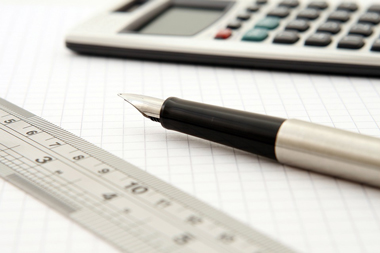Engineering
The College
St John’s College currently takes up to 15 undergraduates each year to read Engineering: about one tenth of our total numbers. They come from a wide variety of schools and backgrounds, from all parts of the UK and abroad, and form a friendly and supportive group.
We have twelve teaching Fellows whose collective expertise covers a broad scope, and who are responsible for supervising our first and second-year students for most of their courses. Third-year and fourth-year supervisions are arranged on a University-wide basis but, given our size, the likelihood of being supervised during the third and fourth year by one of our Teaching Fellows is high.
The College provides excellent facilities for those reading the subject to support the lectures and laboratory work arranged by the University Department of Engineering. The College Library is well stocked, and there are generous book grants available to all undergraduate students. St John’s has a thriving College Engineering Society (known as the Parsons Society) and Engineers invariably make a major contribution to all aspects of College life.
Subject Video
Subject Video
Engineering
The Courses
The Engineering Department in Cambridge is independently rated as world-class in UK Research Assessment exercises and is officially ranked as delivering the highest possible category of quality of teaching. While not wishing to sound complacent, St John’s is pleased to note that we are generally acknowledged as delivering comparable quality at the College level.

Years 1 and 2
Tomorrow’s engineers are likely to work in an era of ever more rapidly changing technology. Flexibility and the ability to integrate ideas from different branches of engineering will be vital skills. The first two years here (Parts IA and IB) form the broadly based course, which is widely respected and very important to the training of modern, top-flight engineers. The third and fourth years provide the opportunity to specialise in a particular branch of engineering.
Years 3 and 4
Specialists in manufacturing engineering take the Manufacturing Engineering Tripos in their third and fourth years. All other specialist areas (Civil, Structural, Mechanical, Aeronautical, Environmental, Electrical, Electronic and Information Technology etc) are covered in Parts IIA and IIB of the Engineering Tripos. Chemical Engineering specialists normally change to the Chemical Engineering Tripos for their second and subsequent years.
All these courses involve a total of four years study for the BA and MEng degrees*. Provided that the appropriate specialist options are followed in the third and fourth year, those completing the fourth year via the Engineering, Chemical Engineering or Manufacturing Engineering Triposes will have satisfied the academic requirements for corporate membership of the appropriate engineering institutions, and can proceed after further professional experience to become Chartered Engineers. Part IB of the Engineering Tripos can also be followed by the one year Management Studies Tripos (leading to a BA degree after a total of three years study).
Growing out of our belief that the education of Engineers should contain an international flavour, the Department has extensive language learning facilities and a variety of language courses available. We also regularly have students involved in international exchange programmes run by the Department of Engineering, working with the CentraleSupelec (formerly known as Ecole Centrale Paris) and the National University of Singapore. Cambridge students spend their third year abroad and an equivalent number of students come here.
The Chemical Engineering Tripos is also taken by students who start by reading the Natural Sciences Tripos; the question of whether to prepare for this subject by reading Engineering or Natural Sciences for the first year is one which must be considered on an individual basis, and on which we are happy to give advice.
*second class Honours at the end of years two or three are a University requirement for entry to the fourth year and MEng degree.
Entry Details
UCAS Code: H100
Typical Entry Requirements
A Level: A*A*A
International Baccalaureate: 40-42 points, with 776 at Higher Level
Essential Subjects: A Level/IB Mathematics and Physics
Desirable Subjects: A Level/IB Further Maths
Submitted Work: None
Pre-interview Assessments: Applicants for Engineering will need to sit the University's Pre-Interview Admissions Assessment, more information on which is available here. The Engineering Admissions Assessment (ENGAA) consists of 2 Maths/Physics assessments which last 60 minutes each.
Application to St John’s
Applicants apply for Engineering from a wide spectrum of educational backgrounds. If you are following a non A-level curriculum, the Undergraduate Admissions Office can be contacted for advice on Admissions@joh.cam.ac.uk
Advice on choice of Mathematics modules for engineering can be found on the Engineering Department’s website.
Admissions Interviews
Details regarding the operation of admissions interviews in the 2020-2021 admissions round have yet to be confirmed.
People
Directors of Studies
Dr Andrew Wheeler - Engineering (Part IA)
Dr Hannah Joyce - Engineering (Part IB)
Dr Michael De Volder - Engineering (Part IIA and Part IIB)
Tutor
Dr Georgina Evans
College Research Associates
Dr Laura Maggini
Dr Luca Magri
Dr Christopher Proctor
College Teaching Associates
Dr Chris Cleaver
Dr Neville Dean
Further Information
Further Information
The University Engineering Department publishes a booklet entitled Undergraduate Engineering at Cambridge University, which gives fuller details of the Engineering Tripos and related courses. Details of the Department's Open Day may be obtained from the Teaching Office, Engineering Department, Trumpington Street, Cambridge, CB2 1PZ, tel: 01223 332625, or by email to: teaching-office@eng.cam.ac.uk. No advance booking is necessary. You can also visit the Engineering Department web site at http://www.eng.cam.ac.uk/admissions/.